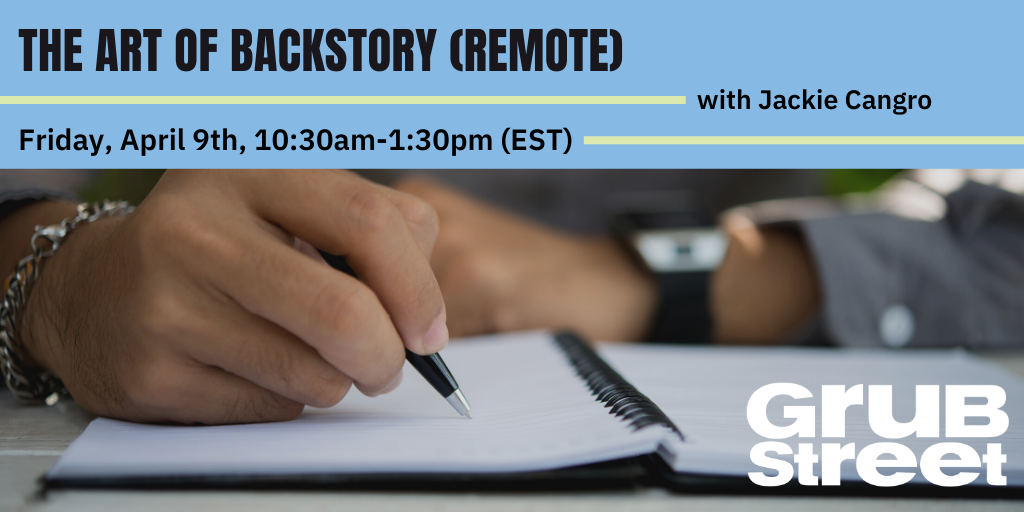“The most important things to remember about backstory are that (a) everyone has a history and (b) most of it isn’t very interesting. Stick to the parts that are, and don’t get carried away with the rest. Life stories are best received in bars, and only then an hour or so before closing time, and if you are buying.”
Stephen King
This quote from Stephen King’s book On Writing is one reason there is an art to writing backstory in your novel! But he advises us to stick to the points that are interesting. How do we know which points are interesting? All of it seems, not only interesting but essential. That’s exactly what I’d like to discuss here.
The story you’re telling doesn’t really start on page one. It started long before that. Writers are often told to cut backstory, but characters don’t show up as fully formed human (or other) beings. They have a past and that past affects who they are in your story and what they want.
Understanding your characters’ backstory can deepen motivations (why they want what they want) and solve plot problems (what they do next).
In other words, backstory is the story. The heart of your protagonist’s story is buried in their past. The past is the lens through which they evaluate the present. And the present — what’s going on in your protagonist’s life right now — is the direct result of all that accumulated experience. Your protagonist’s plans or goals or desires are going to be tested during your novel. There will be roadblocks and conflicts and obstacles in their way. So, you need to know why those plans or goals or desires matter to your protagonist, and the answer is (you guessed it) backstory.
Backstory has gotten a bad reputation for good reason. Backstory by definition takes the story backward. Whether we employ flashbacks or recollections, every instance of backstory stops your novel’s forward momentum, and risks losing the reader’s attention and interest. Backstory halts momentum and slows pacing.
Before you consider adding backstory, it’s important to know why you want to move back in time. Here are four good reasons to include backstory in your novel:
- Provide context to what’s currently happening in your story
- Learn more about your protagonist’s relationship with another character
- Understand a character’s internal or external motivation
- Increase suspense because past events can create expectations of future developments
These are four solid reasons for flashing back in time. Make sure that you choose one of them so that your backstory feels necessary and integral to the plot of your novel.

NEW ONLINE SEMINAR ALERT! If you’ve been wondering how to include backstory into your novel, my new GrubStreet class The Art of Backstory is for you! we will go over the essentials of flashback and explore tools and techniques to make sure that the backstory is adding rather than detracting from the story. The seminar is Friday, April 9 at 10:30 am – 1:30 pm Eastern. Hope to see you there!


